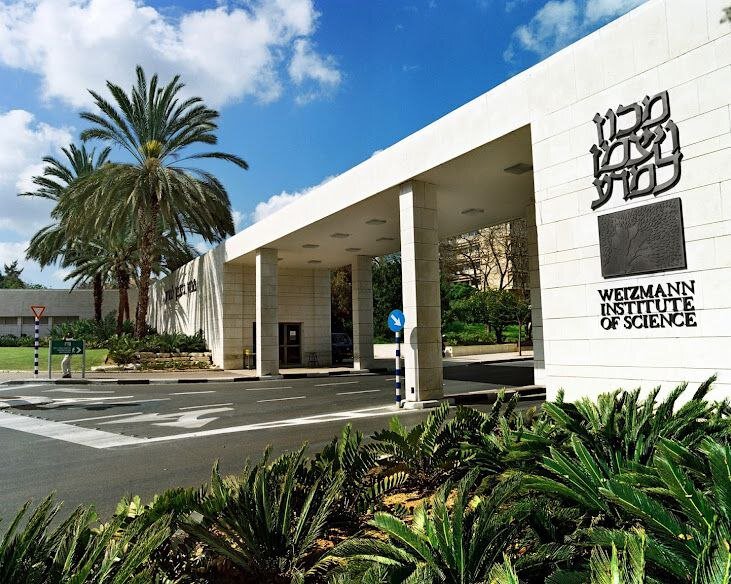Weizmann institute's role in Israel's undeclared nuclear program

TEHRAN- Weizmann Institute of Science, which is prominently situated in Rehovot, Israel, is a foreign research establishment in natural and exact sciences. It was set up by Dr. Chaim Weizmann, a famous chemist and Israel's first President, who set up the institution in 1934. Incessantly since the institute has become an eminent site for innovation and education in technology.
It is mainly identified with molecular biology, regenerative medicine, and informatics. There have been discussions about its classified military and nuclear programs for Israel.
Overview of the Weizmann Institute
The institute has around 2,500 researchers and staff in over 30 laboratories that train graduate students in mathematics, physics, chemistry, biology, biochemistry, and computer science. It led cancer research, developed the first computer in Israel (WEIZAC), and has also made various pharmaceuticals, including Copaxone(r), which is used to treat multiple sclerosis. Yeda Research and Development Company, the commercial vehicle of the Institute, manages its intellectual property and has returned hundreds of millions in royalties.
The Weizmann Institute is, however, deeply integrated with the defense sector in Israel. It maintains close collaborative ties with military contractors such as Elbit Systems and Rafael in the creation of advanced military technologies, including AI for combat data analysis, UAVs, electronic warfare means, encrypted line-of-sight communications, and alternative GPS navigation systems. This and other similar true dual-use areas create some illusion of civilian science being separate from the military.
Role in Israeli nuclear program
Since its inception, the Weizmann Institute has taken an active role in supporting Israel's clandestine nuclear program. Many of the Dimona nuclear reactor scientists were the institute's graduates or faculty members. Its research infrastructure and scientific expertise constitute the backbone of Israel's nuclear R&D, which still remains a secret but plays very much into the country's capability for strategic deterrence. The scientific community of the institute has long stood for the advisory treatment of Israeli security agencies, including Mossad and the Ministry of Defense, in strategic nuclear and military projects. This close association has placed the Weizmann Institute in direct relationship with Israel's national security work and with the controversial nuclear armory-that nobody in Israel has ever officially acknowledged to be there, but everyone agrees, perhaps.
Strategic importance and recent developments
The Weizmann Institute isn't just a university's an essential pillar of Israel's military and industrial complex. Its graduates fill the ranks of elite units such as Unit 8200, Israel's top signals intelligence and cyber warfare operation, and the Talpiot program, which trains the Israeli military's top minds in science and technology. The strategic importance of the site was reinforced when, on June 15, 2025, Iranian ballistic missiles hit the institute's grounds, destroying a number of buildings and labs. The attack dealt a destructive blow to active research and infrastructure, stalling crucial work on at least a dozen projects funded by the European Research Council. Internal estimates indicate that repairs might cost as much as $500 million. Research was put on hold, with workers taking shelter at home. Analysts see the strike as a symbolic and tactical escalation in the broader, shadowy conflict between Iran and Israel, with the "brain" behind Israel's military and nuclear edge as the target. The attack laid bare chinks in Israel's scientific-military complex, and bore a clear message about the perils confronting institutions involved in military programs.
Critical perspective: Israeli aggression and regional implications
The Weizmann Institute of Science, though renowned for scientific achievements, exists under the shadow of Israel's policy of nuclear ambiguity. Israel has a policy of neither confirming nor denying that it has nuclear weapons, and has kept mum even as other countries in the region openly seek to acquire them, a stance that can make a mockery of international nonproliferation efforts. "The silence is strategic also because of facilities like Weizmann, which has made a deep contribution to the development of Israel's nuclear project that the Israeli public has no clue about," he added. Despite overwhelming evidence from intelligence and whistleblowers, Israel has refused to allow transparency or take responsibility for its nuclear work. This unresponsive posture feeds regional tensions as Iran and others in the neighborhood increasingly view an expanding, unimpeded nuclear threat. By keeping Weizmann's involvement in nuclear research a secret, not only do we hide Israel's military goals, making it difficult to pursue a Middle East without nuclear weapons. By its silence about its nuclear behaviour, Israel is stepping on the norms of international behaviour and only further encouraging hostility and resentment. The Weizmann Institute Iranian missile strike, however, is a confrontation not merely with Israel's military muscle but also with the look the other way, denial culture that maintains and exacerbates regional instability.
